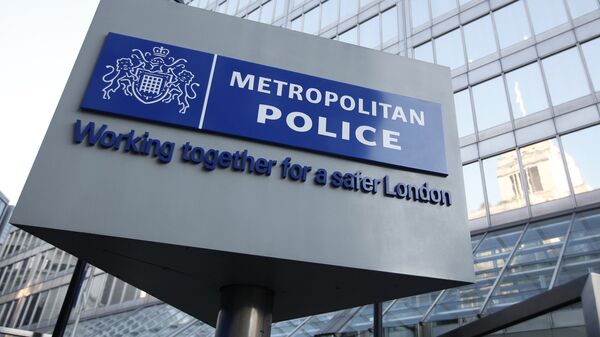British lawmakers are warning that the country is at risk of turning into a “police state”, as police tell media outlets not to publish leaked government documents after a row that led to the resignation of the UK’s ambassador to the US.
“This is a dangerous road to go down. Once you start prosecuting the media for publishing stuff you don’t like, that is a very dangerous place to be,” Bob Seely, a Tory MP who sits on the Commons Foreign Affairs committee, told the Telegraph.
He lamented that the government was “effectively justifying state action against the media”, adding that police should go after the leaker, if they breached the Official Secrets Act, but not the media.
Going after the Leaker is fair game, going after the Media is not. @AVMikhailova @TelePolitics https://t.co/hxqhRPja3c
— Bob Seely MP (@IoWBobSeely) 12 июля 2019 г.
Norman Lamb, the former health minister who now heads the science and technology committee as a Liberal Democratic MP, said: “We can’t contemplate any slippery slope to a police state that accepts that sort of limitation on the freedom of the press to report.”
John Whittingdale, the Tory MP and former culture secretary, said: "The idea of prosecuting journalists is completely wrong.”
He added he was “horrified” that the UK ambassador’s diplomatic cables were made public, but felt that “there is no point shooting the messenger. Journalists are there to report stories whether or not they are going to be embarrassing to the people who are in them."
A Leak Inquiry
The backlash comes after Scotland Yard launched an investigation into the leaking of confidential communications between the UK's ambassador to the US Kim Darroch, and the Foreign Office, in which he made disparaging remarks about the Trump administration.
In charge of the leak inquiry is the Metropolitan Police’s counter-terrorism command, which probes allegations of criminal breaches of the Official Secrets Act.
Met Police Assistant Commissioner Neil Basu said on Friday that there is “clear public interest” in catching the mole.
He also advised media owners, editors and publishers not to publish “leaked government documents that may already be in their possession, or which may be offered to them”, and instead turn them over to the police or to their owner.
Sir Alan Duncan, a Foreign Office minister, said there was no evidence to suggest that Darroch’s diplomatic cables had been hacked, so the focus was on finding the leaker within the department.
A Diplomatic Crisis
The exposure of Ambassador Kim Darroch’s confidential communications has caused a stir across the Atlantic.
Donald Trump branded Darroch “a very stupid guy” and banned him from Washington. Darroch stepped down on Wednesday, saying it was “impossible” for him to continue.
Outgoing Prime Minister Theresa May and the Foreign Office have both defended the disgraced envoy, saying, however, that the leaks were regrettable.
Darroch quit after a TV leadership debate between Boris Johnson and Jeremy Hunt, in which Johnson failed to back the ambassador and criticised the leak.
Following the debate, Johnson faced a wave of criticism with perhaps the strongest verbal attack coming from Alan Duncan.
He accused Johnson of throwing Darroch “under a bus” and going against the interests of the country, but the front-runner to become Britain's next PM shrugged off the accusations by saying he was a “great supporter” of Kim Darroch and explaining that he didn’t support the ambassador because he didn’t want to “drag public servants' careers into the arena in that way”.




